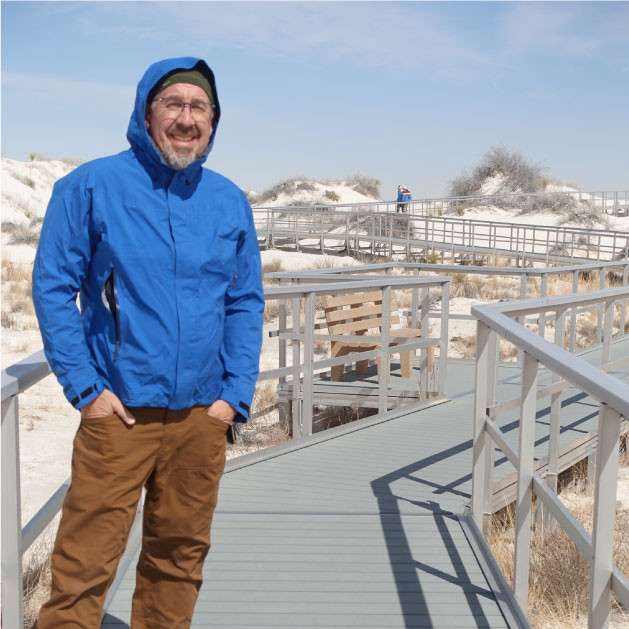
Robert Barkhau

Robert Barkhau
Class Year
’83
Current home
Aiken, South Carolina
Major(s)
Chemistry
Current Position
Senior Engineering Manager (retired) at Kimberly-Clark Corporation
After college, Robert Barkhau ’83 spent 32 years working in the paper industry. As the senior engineering manager for the Kimberly-Clark Corporation in Philadelphia, his biggest project was overseeing the restructuring of the Chester Mill over a 10-year span.
Mr. Barkhau’s role comprised of managing engineering projects and budgets, working with the corporate staff team to bring innovation into the facility, and directing internal mill teams that operated the power plant and maintained the physical plant. He was also responsible for building engineering talent across the plant through career development. His appointment gave him the opportunity to serve on the Engineering Board of Advisors at Widener University, which was local to the Chester Mill.
Mr. Barkhau is now happily retired and lives with his wife in South Carolina.
What have you enjoyed most about your career?
“Initially, my career was focused on applying scientific and engineering principles to problems and/or opportunities encountered in the tissue manufacturing process. I enjoyed this as I got to work with operators and maintenance personnel to design and implement solutions. Listening to experienced mill team members taught me a lot about how to be an engineer.”
“I then moved into engineering management, in which the job broadened out and success was based on how well teams performed. I had to learn to be patient and coach the team through issues they were facing vs. doing the job myself, which is sometimes a hard transition. I found it very rewarding, however, when the team achieved success — then it was time to celebrate them and their accomplishments.”
How did Carthage prepare you?
“Most definitely the diverse coursework required while I was a student taught me how to adapt and be comfortable with subjects outside of my major. Within my major, the scientific rigor required stayed with me as it was always about attention to detail. Lastly, I had to learn to communicate well across all fronts. As a student at Carthage, I never appreciated having to do extensive lab write-ups, group projects, and oral presentations. In hindsight, these were as, or more, important than the technical skills I was learning.”
How has your liberal arts education benefitted you?
“When I first went into management and had direct reports, I realized that I was the ‘face of the corporation’ to my team members. The caring and concern that I observed and learned at Carthage was a key to making the transition from being an ‘individual contributor’ to being a ‘manager.’ I also learned at Carthage that you can lead without being designated as the ‘boss.’ This was a valuable lesson as it taught me to look for opportunities and not to be afraid to take the reins and run with it as the situation warranted.”
Why did you choose Carthage?
“There were several reasons. First, I wanted a school that offered smaller class sizes with direct access to professors. Second, I am Lutheran, so the religious opportunities offered also appealed to my sense of being. Third, my grandparents lived along Lake Michigan, so the campus setting was a draw as well.”
What opportunities were made possible because of your Carthage experience?
“My professors encouraged us, as chemistry majors, to consider going to graduate school and get an advanced degree. Carthage, at the time, was also providing the opportunity to apply for internships at Argonne National Laboratory for fall semester and J-Term during senior year. I was accepted into the program at Argonne, which really was a game changer for me as it taught me what being a professional scientist was all about. As a result, I went to graduate school at the Institute of Paper Chemistry (IPC), which was in Appleton, Wisconsin at the time (now it is part of Georgia Tech). IPC, like Carthage, was small, which appealed to me for the same reasons Carthage did. The master’s degree program also required the completion of a broad series of engineering basics as part of their ‘scientific generalist’ approach. After the completion of my MS there, I was accepted into the Ph.D. program where I was able to go back and focus on organic chemistry.”
What Carthage professors played a part in your success and how?
“When I attended Carthage, we had four chemistry professors who all had 25 plus years of experience: Hade, Hansen, Hamm, and Strommen. After several years, they really got to know my learning style, and they adapted their teaching methods to individualize material for students as needed. I tried to emulate that as I managed engineers throughout my career. I recognized how fortunate I was to have those four gentlemen as my main professors and hope that some of my former team feel the same about me.”
What's your favorite Carthage memory?
“I have fond memories of my chemistry classmates as we spent a lot of time together.”
Tips for current Carthage students?
“My biggest piece of advice is to embrace the learning opportunities presented at Carthage and continue to apply them throughout your career.”
